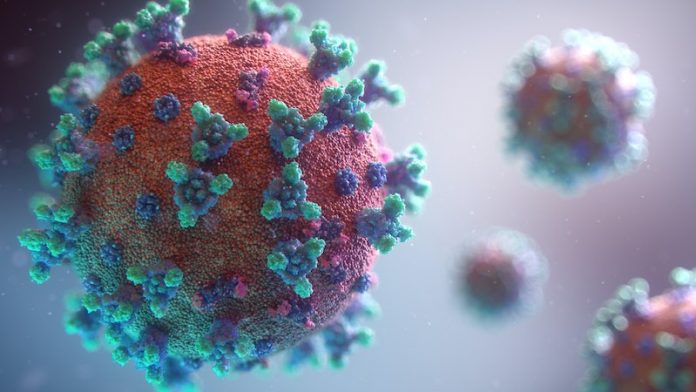
In a new study, researchers found a genetic variant of COVID-19 virus that resulted in a less severe form of the disease, with a muted immune response, milder infections, and better clinical outcomes.
The research was conducted by a team at the Singapore Immunology Network (SIgN) and elsewhere.
Like any other organism on the planet, the SARS-CoV-2 virus is prone to the natural genetic diversity that may arise from mutations.
Since the severe acute respiratory syndrome coronavirus 2 (SARS-CoV-2) hit the world, there have been fears that mutations could lead to more infectious or even more lethal strains of the coronavirus disease 2019 (COVID-19).
Thankfully, the reverse may also be true.
The study focused on a particular variant that was detected through the routine sequencing of the SARS-CoV-2 genome in a cluster of cases in Singapore that occurred between January and February of this year.
This variation is a deletion of 382 nucleotides, which is referred to as the ∆382 variant. The deletion is located in a region of the genome called the open reading frame 8 (ORF8) region, a known hotspot for mutations and genetic variation in coronaviruses.
In this case, the deletion has resulted in the removal of the ORF8 transcription-regulatory sequence, meaning the ORF8 protein is not produced.
Back during the 2002-03 SARS epidemic, a deletion of 29 nucleotides in ORF8 resulted in a variant of the virus that was unable to replicate as efficiently as the wild-type virus.
This observation led to some speculation that it could have resulted in a milder illness as well, although it was not examined at the time.
In the study, the team screened 131 patients with SARS-CoV-2 infections and found that the variant was present in about 30% of the patients.
Of those 131 patients, 29 (22%) carried only the ∆382 variant virus, while 10 (8%) had a mix of both the wild-type and the ∆382 variant viruses.
Similar variants with deletions of varying lengths in ORF8 have been observed in other countries as well, such as Bangladesh, Australia, and Spain.
Given what they know about the ORF8 region and the similar deletion in the SARS-CoV, they wanted to determine if the ∆382 variant affected the severity of subsequent SARS-CoV-2 infection.
So the doctors looked at the infection severity and compared the patients infected with the variant against those infected with the wild-type SARS-CoV-2 virus.
They found patients with the ∆382 variant were less likely to need supplemental oxygen.
Although all patient groups developed pneumonia at a similar rate, no patients in the ∆382-variant only group required supplemental oxygen.
They were also less likely to develop hypoxia, the dangerous state of the oxygen deprivation that arises in severe COVID-19 cases.
Not only that, but patients infected with the Δ382 variant also had lower concentrations of pro-inflammatory cytokines and chemokines that are strongly associated with severe COVID-19.
Notably, they displayed lower concentrations of growth factors linked to lung injury and regeneration, suggesting that the infection was not severe enough to damage the lungs.
The patients with the Δ382 variant also had a better immune response: further immunological analysis revealed that they had more effective platelet regulation and T cell responses in the early phase of the infection, something usually severely impaired in SARS-CoV-2 infection.
Instead, patients with the variant showed a more robust production of a cytokine called IFN-γ, which could be the reason for the rapid and effective immune responses observed.
The team suggests that this variant somehow triggers a reduced pro-inflammatory response and a lower, less damaging cytokine storm that resulted in a milder form of the COVID-19 disease.
The findings support the suggestion that the ∆382 variant of SARS-CoV-2 is linked to a milder infection and better clinical outcomes.
The study is published in The Lancet.
Copyright © 2020 Knowridge Science Report. All rights reserved.



